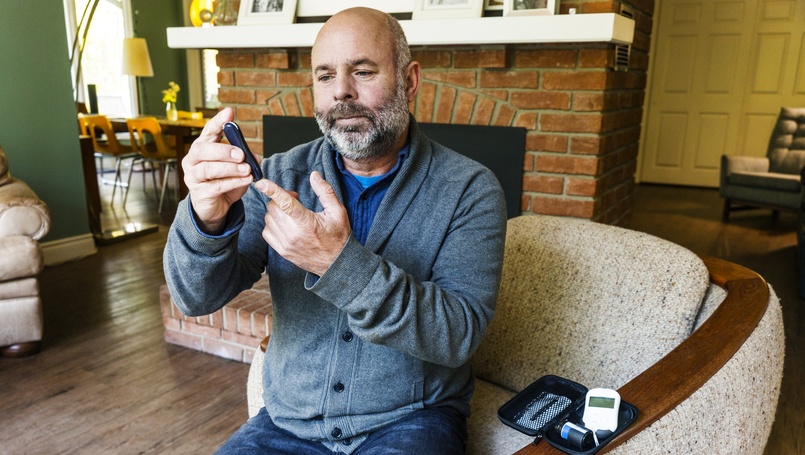
If you've recently been diagnosed with diabetes, it's time to dig in and work on the health goals you set with your physician. It’s time to keep your blood sugar levels in range, your blood pressure in check and your cholesterol down.
First, monitor your A1C to make sure your sugar level is where it needs to be. Keeping tabs on your levels will go a long way for your future health. Blood sugar isn’t where you want it? There are several things you can do to help manage:
Reduce your stress
Sounds easy, but it’s not. But everyone can take a few minutes every day for deep breathing. Other stress relievers include taking a walk, gardening, listening to your favorite music or doing something you love. When you have diabetes, your mental health is just as important as your physical health.
Watch what you eat
You'll get the most bang for your buck with your diet when dealing with diabetes. We live in an eat-on-the-go world, so meal planning is key to staying on track. Keep your three squares by choosing foods that are low in calories, trans fats, sugar, salt and carbohydrates.
Choosing foods higher in fiber and protein is your best bet. Think: veggies, chicken, fish, nuts and some fruit. And for an easy fix, substitute water for soda. A visit with a dietitian can give you great ideas on how to make good food choices.
Exercise
Being active benefits your whole body, not just your diabetes. Start slow, though, and build up your workout tolerance. Park a few spots further out than you would at work. Then, take a 10-minute stroll on your lunch. Or, find an activity you truly enjoy. Swimming, aerobics, biking and sports are all great ways to get in some exercise. You know the best part of exercising? Every little bit helps and it all counts.
While those are the big three things, if you’ve been diagnosed with diabetes, there are plenty of other things you can do to ensure your health:
- Take your medications for all health conditions
- Rest up
- Check your feet regularly for cuts, blisters, bruises or sores that won’t go away
- Quit smoking
After you have a firm understanding of how diabetes can affect your health, educate yourself more as well as those around you. Make sure you understand the risks associated with the disease, symptoms and what you should do about them.
Additionally, notify your entire health team of your diagnosis including your dentist, eye doctor, primary care physician and any other specialists you might see. It’s especially important to work with your eye doctor to make sure you aren’t developing any eye-related complications.
Diabetes is manageable and you can do it. Working with your doctors and a dietitian is a great way to get on the path to a healthy lifestyle.
